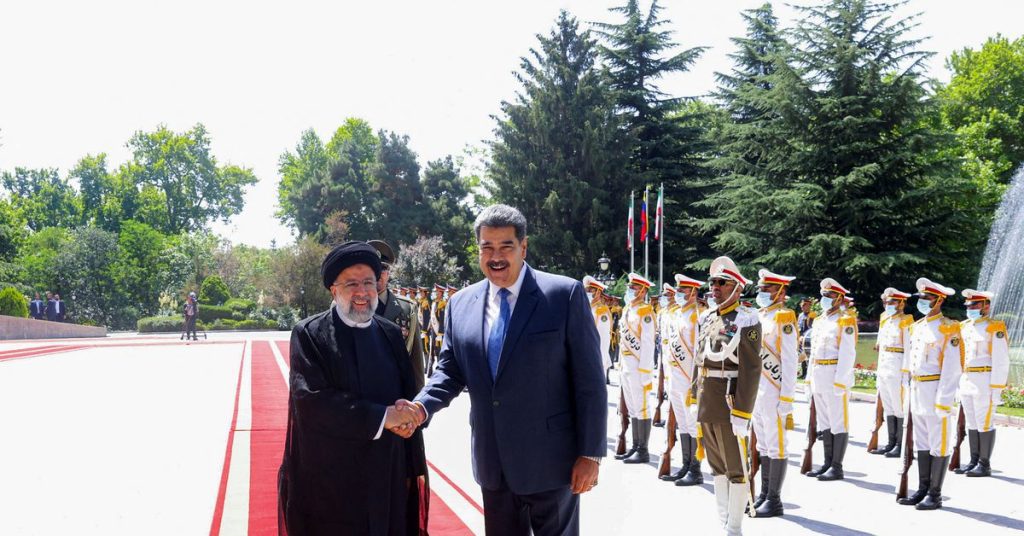June 11 (Reuters) – Iran and Venezuela, oil producers fighting US sanctions, signed a 20-year cooperation plan in Tehran on Saturday, and the Islamic Republic’s supreme leader said the two allies would continue to resist pressure from Washington.
The signing ceremony, which was broadcast on Iranian state television, was supervised by Iranian President Ibrahim Raisi and his Venezuelan counterpart Nicolas Maduro, and was held at Saadabad Palace, north of Tehran.
The plan includes cooperation in the fields of oil, petrochemicals, defense, agriculture, tourism and culture.
Register now to get free unlimited access to Reuters.com
It also includes the reform of Venezuelan refineries and the export of technical and engineering services.
“Venezuela has shown exemplary resistance to sanctions and threats from enemies and imperialists,” Raisi said. The 20-year cooperation document is a testament to the will of the two countries to develop relations.
He said, “The sanctions and threats against the Iranian nation over the past forty years have been numerous, but the Iranian nation has turned these sanctions into an opportunity for the country’s progress.”
Maduro said through an interpreter that a weekly flight from Caracas to Tehran would start on July 18.
Iranian President Ebrahim Raisi shakes hands with Venezuelan President Nicolas Maduro during a welcoming ceremony, in Tehran, Iran, June 11, 2022. President’s website / WANA (West Asian News Agency) / Posted via Reuters
In a meeting with Maduro, Supreme Leader Ayatollah Ali Khamenei vowed that Iran would continue to support Venezuela in the face of US pressure, according to state media.
“The successful experience of the two countries showed that resistance is the only way to deal with these pressures,” Khamenei said. “The two countries have close relations with any other country, and Iran has shown that it takes risks in times of danger and holds the hands of its friends,” he added.
“You came to help us when the situation in Venezuela was very difficult and there was no country to help us,” Maduro said.
In defiance of US pressure, Iran sent several shipments of fuel to Venezuela and helped repair refineries. Last month, Venezuela began importing Iranian heavy crude, expanding an exchange agreement signed last year to replace Iranian condensate with Venezuelan heavy crude. Read more
Maduro arrived in Tehran on Friday with a high-ranking political and economic delegation after visiting Turkey and Algeria.
State media said that during the visit to Venezuela, Iran delivered the second out of four oil tankers the size of Aframax, with a capacity of 800,000 barrels, requested by the Iranian Sadara Company. Sadara has been under US sanctions for more than a decade due to its ties to Iran’s Revolutionary Guards.
In May, the state-owned Iranian National Petroleum Engineering and Construction Company signed a contract worth about 110 million euros to repair Venezuela’s smaller 146,000 barrels per day refinery.
Register now to get free unlimited access to Reuters.com
Reporting by the Dubai newsroom; Editing by Jason Neely, Angus McSwan and Diane Kraft
Our criteria: Thomson Reuters Trust Principles.

“Writer. Evil travel maven. Avid creator. Proud beer expert. Music lover. Explorer.”











More Stories
Jake Sullivan meets Yang Jiechi in Luxembourg, paving the way for a possible meeting between Biden and Xi
The CDC adds 3 places to its “high” risk list, including Mexico and the United Arab Emirates
Wordle 359 June 13 – Struggling with Wordle today? THREE CLUES TO HELP ANSWER | Games | entertainment